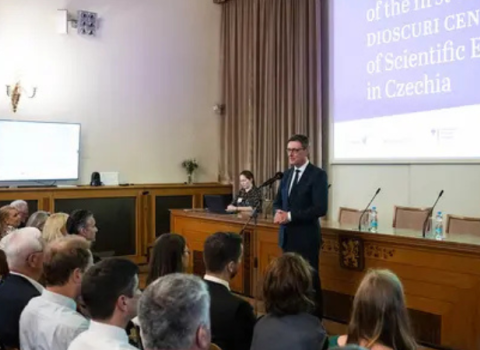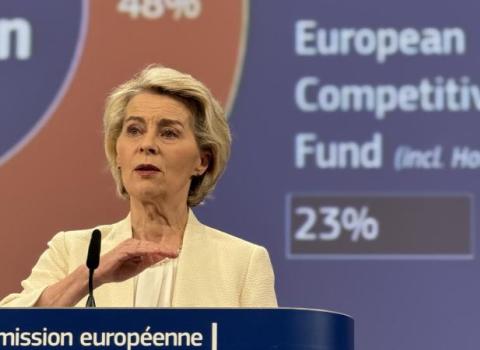This week we’re taking a close look at what’s going on in Hungary after the European Commission blocked the country’s access to Horizon Europe and Erasmus+ grants. Also, universities in Poland want the government to tweak a newly implemented research assessment system.
The latest news
HUNGARIAN FUNDING SAGA: High-level Hungarian politicians are in Brussels this week trying to convince the European Commission to reverse an edict that will prevent Hungarian researchers from getting Horizon Europe grants. The row began after 21 universities were cut off from Horizon Europe and Erasmus over mounting concerns about rule of law breaches in the country. Now, the Hungarian government has sent its top brass to Brussels to convince the Commission to back off.
The affected universities operate under the umbrella of public trust foundations, a new form of governance of public institutions, which critics say allows the government to appoint high-level politicians to university boards. We explain why this is problematic in this story.
In the meantime, students and researchers are increasingly concerned about the impact of being locked out of the two EU funding programmes.
Justice minister Judit Varga met EU budget commissioner Johannes Hahn on Tuesday. Tibor Navracsics, Hungary’s minister for regional development and EU funds (and former education commissioner) is meeting Hahn and research commissioner Mariya Gabriel today.
Freezing Erasmus and Horizon Europe funds to the 21 Hungarian universities would be a huge financial blow. Several of the universities have received millions in grant money from EU research programmes since 2014. Thomas Brent has been following the story and put together a breakdown of EU research funding going to Hungarian universities which is available here.
TWEAKS NEEDED: The first results of a new research assessment system in Poland are in and universities demand improvements.
Following a reform in 2018, the standing of each discipline in each institution has been evaluated on three major criteria: the quality of research output; securing external research funding; and the impact on society and economy. The new ranking system affects the degree of freedom institutions have in setting up their own study programmes, the right to award doctorates, qualification as an academic institution or a vocational institution, and the amount of funding.
But when the government published the first results under the new assessment system in August last year, nearly half institutions evaluated were not satisfied with the outcome. The government is now planning to amend the evaluation criteria before the summer. Anna Rzhevkina has the story.
NEW START-UP CONSORTIUM TO FOCUS ON THE REGION: A consortium of business accelerators and investment funds is hoping its newly launched platform can create a more interconnected start-up ecosystem in central and eastern Europe. Thomas Brent has the story.
GETTING READY FOR THE AI REVOLUTION: Croatia’s artificial intelligence (AI) ecosystem is booming. The country is building a broad community of artificial intelligence innovators, start-ups, and early adopters that it hopes will give it an edge as AI becomes as common as the internet. Ian Mundell has the story.
UKRAINE: A new mathematics centre gives hope for the country’s post-war future. A group of mathematicians with Ukrainian origins has come together to launch the International Centre for Mathematics in Ukraine, to support top level mathematics in the country and to connect Ukrainian scientists with the global scientific community. The full story is here.
In other news
POLAND: In an interview for Prawo.pl published the week before Christmas, Zbigniew Błocki, the director of NCN, the country’s basic research funder, said the budget of the agency should increase by 15% every year for Poland to “start dreaming of reaching” EU average funding figures. The full interview is available here [in Polish].
SLOVAKIA: The French Institute in Slovakia and the Slovak Academy of Sciences have announced joint scholarships in humanities and social sciences. The programme is intended for young researchers working in the academy’s institutes who want to partner with French colleagues. More details here.
The Slovak Academy also announced it intends to revive science relations with the UK, after a joint meeting with representatives of the British Embassy in Bratislava earlier this month.
In addition to establishing new joint projects, the two parties also agreed to work together on protecting scientific research from hybrid threats from Russia, China and other countries with authoritarian regimes.
FOREIGN INTERFERENCE: The Czech Academy of Sciences is also warning that research institutions in central and eastern Europe are vulnerable to foreign powers that conduct “undesirable and unacceptable practices” in the region.
Last year, Czech think tank AMO published a report on Chinese interference in STEM research in Austria, Czechia and Slovakia. The report shows that Chinese technology acquisition abroad is closely tied to military modernisation efforts and more than half of researchers surveyed in the three countries did not know whether their institution had any mechanisms in place to monitor the motivations of international partners.
Mark your calendars
PRAGUE and ONLINE: The Technology Centre in Prague and the Czech ministry of education are organising a hybrid conference on 14 February. Research stakeholders in the region will meet to reflect on the benefits of the European Research Area. Register here.
BRUSSELS: At the end of March, the Czech Liaison Office for Education and Research in Brussels (CZELO) together with the Polish Research Liaison Agency (PolSCA), the Hungarian National Office for Research, Development and Innovation (NRDIO) and the Slovak Liaison Office for Research and Development (SLORD) are organising another three-day training session for research managers based in the Visegrad Four (V4) countries. Registration closes 29 January. More details here.
The Widening newsletter is a roundup of news and analysis of research and innovation policy and investments in central and eastern Europe, delivered to your inbox twice a month. Sign up here.





 A unique international forum for public research organisations and companies to connect their external engagement with strategic interests around their R&D system.
A unique international forum for public research organisations and companies to connect their external engagement with strategic interests around their R&D system.